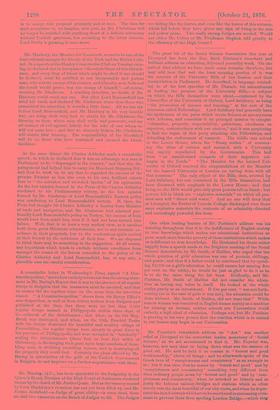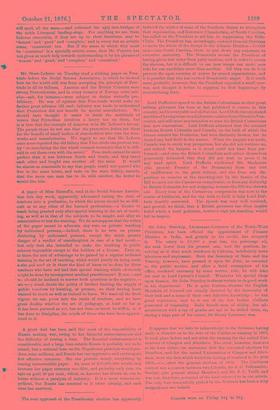Mr. Poynter's remarkable address on " Art " was another
relief at Liverpool to the somewhat leaden monotony of 'Social Science,' as we are accustomed to find it. Mr. Poynter was, however, not very clear in laying down what was the essence of good art. He said be held it to consist in "honest and good workmanship," above all things ; and he afterwards spoke of the Greek love of "completeness and consistency" as an example to us ; but it was clear that he meant by 'honest and good' and by 'completeness and consistency' something very different from what ordinary people mean by 'honest and good' and by com- pleteness and consistency,' when he attacked so bitterly and so justly the hideous railway-bridges and stations which so often utterly ruin the most beautiful of our city views, and when he depre- cated the iron footways which are to be smothered in unmeaning orna- ment to prevent them from spoiling London Bridge,—whioh they -will spell, all the same,—and criticised the ugly iron bridges of the noble Liverpool landing-stage. For anything we see, these hideous structures, if they are up to their functions, may be 'honest' and 'good' and 'complete,' and in every but an artistic -sense, 'consistent' too. But if the sense in which they must be ' consistent ' is a specially artistic sense, then Mr. Poynter has -not given us much help towards understanding it by his phrases of ' honest' and 'good,' and 'complete' and 'consistent.'



































 Previous page
Previous page